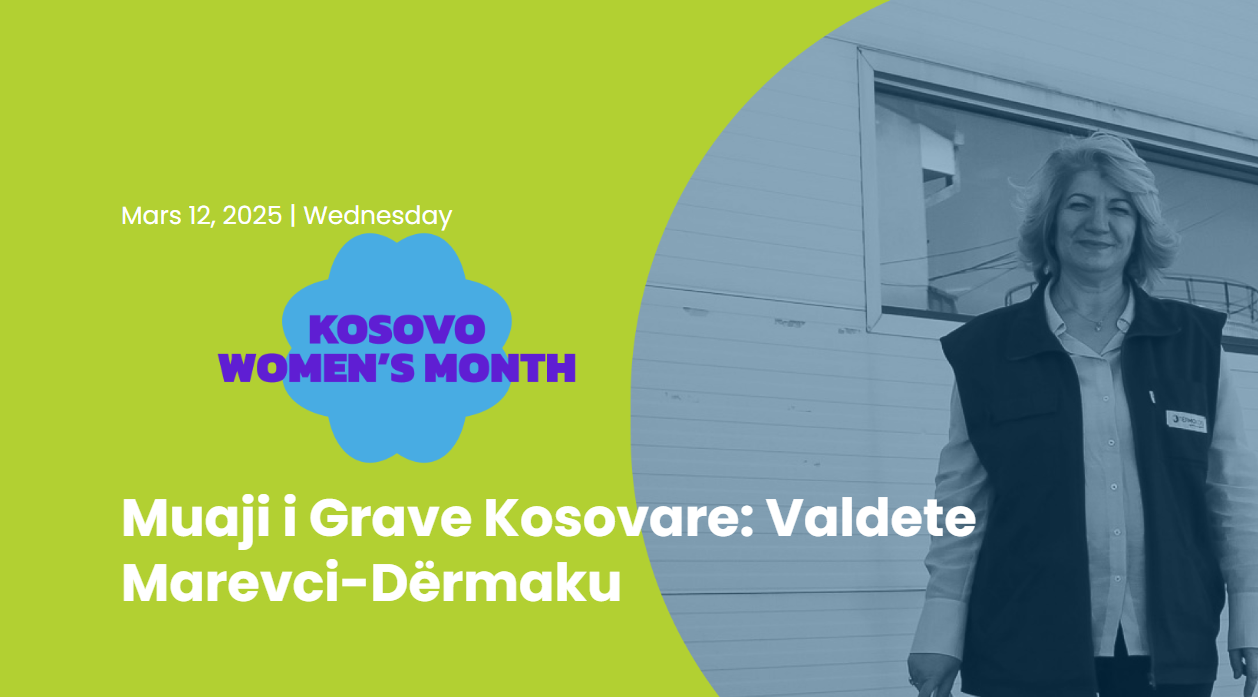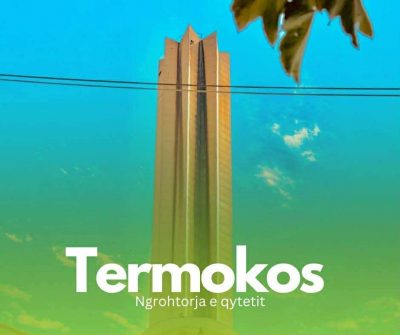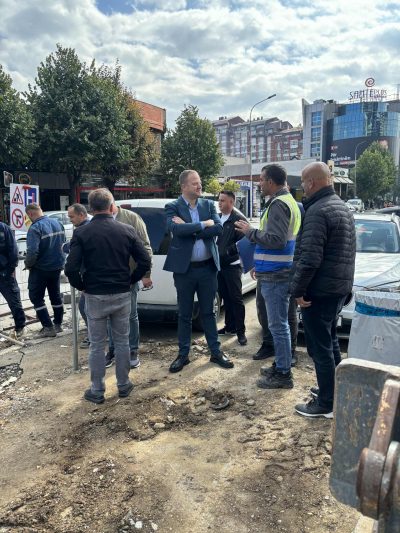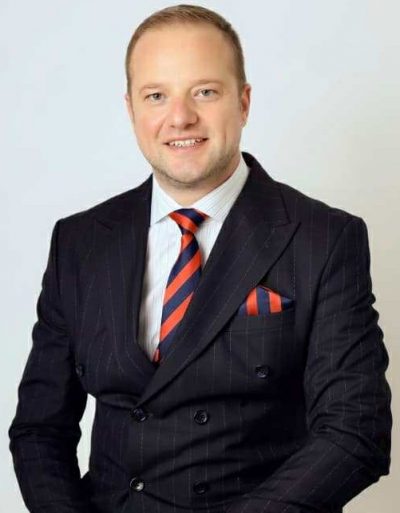Girls in STEM, at the forefront of upending norms and driving economic development
In a field traditionally dominated by men and at a politically and socially challenging time, Valdete Marevci – Dërmaku graduated in Mechanical Engineering. After that, she became the first female engineer at the Termokos public enterprise, in a leadership position, nonetheless. In this interview, she shares with us the challenges of her professional journey, along with a message for girls and women in various occupations to be courageous and determined to engage in such professions, which according to her, are vital for the economic development of a country.
Europe House Kosovo: Ms. Valdete, you studied in a field that has been and continues to be quite male-dominated, at a time when it was even more problematic for women than it is today. How did you decide to study at the Faculty of Mechanical Engineering?
Valdete Marevci-Dërmaku: Initially, I graduated from the Ferizaj Technical School for Machinery, followed by the Higher School for Machinery, also in Ferizaj. After that, I took a short break and in 1997 I enrolled in the Technical Faculty at the University of Prishtina.
I really loved math and physics in elementary school. Both of my parents, who worked in education, supported me in my choice. Technical pathways were particularly challenging, even back then, and they remain so today.
When I joined the faculty in Prishtina, there were very few girls. In my generation, I was the only female student in my major. Nevertheless, this became a source of pride, and we were highly respected by both our professors and fellow students.
Europe House Kosovo: Then?
Valdete Marevci-Dërmaku: At that time, the Technical Faculty had five years of basic studies. After completing my basic studies, I continued with my master’s studies. Following the war, the system changed, and for those of us who had completed five years of basic studies, two of those years were counted as master’s degree. However, I chose to continue my master’s studies because I wanted to remain academically active.
Europe House Kosovo: You moved to Prishtina as a student. What are your memories of that period?
Valdete Marevci-Dërmaku: Yes, initially before the war, the dormitories were occupied and we had to live in private homes. It was an incredibly challenging time for students. After the war, however, we were able to return to the dormitories; though we faced various difficulties, the joy of freedom and youthful enthusiasm kept us moving forward.
Europe House Kosovo: How did the circumstances arise for you to be employed at Termokos, as the first and only female engineer?
Valdete Marevci-Dërmaku: Actually, right after graduating, I was hired by the KFOR as a quality control engineer. At the KFOR base in today’s Arbëria neighbourhood, we checked the quality of the construction work being carried out there. We were a team of six engineers specialized in electrical, civil, and mechanical engineering.
Following my time at KFOR, the Ministry of Trade and Industry began establishing the Department of Metrology, as many institutions were being built in Kosovo at the time. I was recruited to work in that department, but since it was still in its early stages and staff needed training in metrology, I attended courses at the Institute of Metrology, which was located in Prizren at that time.
During my training at the Institute of Metrology in Prizren, I also applied for a position at Termokos, and after being accepted, I decided to continue my career at Termokos.
Europe House Kosovo: What were the beginnings of your work at Termokos like, and what position did you begin with?
Valdete Marevci-Dërmaku: In 2004, I started working at Termokos as a Maintenance Engineer in the Mechanical Maintenance Department. However, two weeks after I started working at Termokos, the then director of the department left for another job, and I was immediately appointed as the acting director of the Mechanical Maintenance Department. Shortly thereafter, I was promoted to Director of the Mechanical Maintenance Department.
Subsequently, two weeks after starting work, I was placed in a management position. Leading a department of 45 employees, including two engineers was a huge challenge, but I had support from my colleagues.
Europe House Kosovo: What work did this department perform?
Valdete Marevci-Dërmaku: The Mechanical Maintenance Department has developed the network, meaning it has carried out the installation of pipelines, the installation of substations, and has carried out all necessary repairs to the network. We have also managed the necessary repairs to production equipment, specifically the fuel oil boilers, as we are talking about a time when Termokos still operated on fuel oil. Fortunately, much of this work is now handled through donations or subcontractors, but at that time, it was all carried out by the Mechanical Maintenance Department.
Europe House Kosovo: Do you currently hold the position of Director of the Mechanical Maintenance Department?
Valdete Marevci-Dërmaku: No, now I am the Enterprise’s Coordinator with other institutions. So, I coordinate the company’s communication and work related to other line institutions, such as the regulator’s office and various ministries that request reports from Termokos. It is about setting tariffs, energy balances, and the enterprise’s development plan. Essentially, every information related to Termokos’ technical issues passes through me.
Europe House Kosovo: What work is Termokos currently undertaking in implementing sustainable and environmentally friendly measures?
Valdete Marevci-Dërmaku: Since the implementation of the co-generation project in 2014, Termokos has been supplied with hot water from Kosovo B, and in fact, is no longer a polluter, as it no longer operates with fuel oil boilers or any boilers at all. Currently, we are in the early stages of a solar energy project, which is a major capital project with 50 megawatts of thermal energy and a value exceeding 80 million Euros. Additionally, the other capacity-doubling project is related to the 2014 co-generation project, but now we will add another 140 megawatts of thermal energy, of which 40 are planned for the Municipality of Obiliq and 100 utilized by Termokos. So, Termokos will expand by 150 megawatts: 50 from solar energy and 100 from Kosovo B.
For this, on behalf of the company, I would like to sincerely thank the European Commission for its support in every project and for consistently standing by Termokos in its development projects, including network expansion, the co-generation project, and now the solar energy and capacity doubling project.
Europe House Kosovo: What message do you have for girls who are in similar professions to yours today?
Valdete Marevci-Dërmaku: I encourage all girls to pursue technical careers, as so much depend on engineering. Engineers develop the country. Especially new directions in environmental protection, energy efficiency, and renewable sources are extremely attractive and, in addition, are extremely important for the times we live in.
Girls are highly committed. Everywhere, even in developed countries, energy companies that employ women and are led by women, are more successful. Because women and girls are exceptionally careful, dedicated, and responsible managers. Women do not make ad-hoc decisions without analysing them carefully.
Even in Termokos, the girls and women who are employed contribute greatly to the enterprise, because they are very dedicated to their work and are highly successful. I have one message for girls: don’t be afraid! Young women should not be scared of the challenges of the energy sector, they should be determined that they will always succeed to overcome the challenges.
The interview was conducted by the European Union Office (EU Office) in Kosovo.



